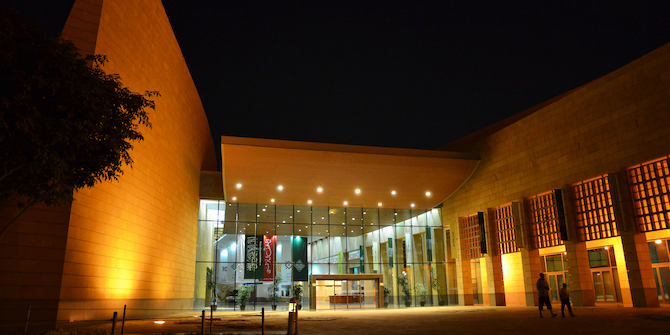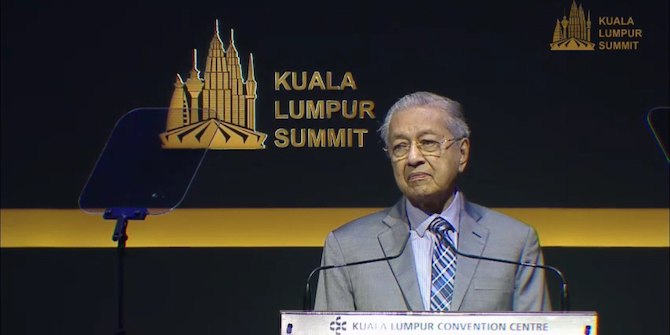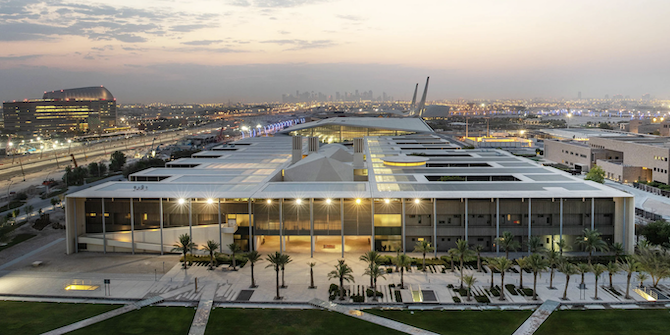By Hebah Bukhari

Riyadh, the Saudi capital, by night. Source: lawepw, Wiki CC
In 2016, it was announced in the Saudi 2030 Vision, headed by de facto leader Mohammed Bin Salman, that the country would privatise its government agencies. The objective is part of the plan to diversify the country’s economic revenues instead of relying entirely on oil. In September 2020, it was announced that the plan to privatise 38 government agencies is still on and would complete the privatisation of 13 of those agencies including education, health, and housing within two years. This plan will put financial pressure on its citizens and radically alter the political and social landscape in the country.
It is not the first time the government has imposed unusual economic reforms on its citizens. Two years ago, the government imposed a new value-added tax of 5 percent on most goods and services. Now, amidst the 2020 COVID-19 global crisis, the Saudi government has raised this tax to 15 percent as a measure to combat the economic crisis that faces the country as a result of the pandemic.
If we could learn anything from past experiences of privatising government agencies and public services, it is that it usually leads to corruption that ultimately leads to disasters. It also creates financial burdens on middle and lower class citizens beyond their capacity. This was especially seen in the Lebanese experience. The recent announcement that the privatisation plan will be completed within two years has sparked fears and concerns among citizens who took to Twitter to express their opinions. Many expressed concerns about prices skyrocketing and their inevitable inability to financially afford basic services like healthcare and education in a hashtag that means ‘no to privatisation’.
Taxation was a completely foreign concept to most Saudi citizens until the value added tax was implemented in 2018. Since its inception, Saudi Arabia has operated as a rentier state thus avoiding any kind of accountability to its citizens. As an authoritarian absolute monarchy, the regime has been successful at earning the utter and unquestionable loyalty and support of its citizens precisely for being a rentier state in which the social contract works in one direction. The regime governs and manages all affairs of the country and it alone provides the citizens with a strong welfare system and free healthcare, education, solid infrastructure, etc. All of this is done and promoted within a patriarchal rhetoric where the regime is the benevolent patriarch that has the people’s best interest at heart; the protector and provider of the land. The people, on the other hand, are the other members of the ‘household’ in this rhetoric; the dependents of the patriarch that must blindly comply and conform, never question or complain about the ‘patriarch’ so long as their basic needs of food, shelter, and security are met. It is common to hear people praise the government in private and public discourse, particularly with the phrase: ‘The government is giving us safety and security. God bless the government.’ In a country where the citizens view themselves as dependents of the government and feel a strong sense of entitlement to those public services, the new changes could ultimately face strong resistance.
Imposing taxes in a country like Saudi Arabia means the government will eventually be held accountable. With citizens contributing to public services through taxation, they will demand involvement in the political process. This kind of dynamic is not only unprecedented in a country like Saudi Arabia but also does not fit with the patriarch/dependent relationship between the government and its people. Privatisation is a further step towards completely changing this dynamic between the regime and the people.
By privatising public agencies and services, there is greater possibility of a strong alliance between regime apparatus and capital investors, which will in turn create greater financial burden on the citizens under stronger authoritarianism. In addition, there is the likelihood of a widened gap between the capital owning class and the lower class while the size of the middle class diminishes. The regime is, nonetheless, relinquishing its absolute authority that comes from the patriarchal role of providing services to the people, especially since the agencies to be privatised provide essential social and economic services like water, energy, agriculture, transportation, education, healthcare, etc.
Relinquishing this kind of economic authority will likely have drastic effects on the political sphere in the long run. The people will acquiesce at first. Eventually, however, the people will no longer have a sense of entitlement, dependency, or even gratitude towards the government. The economic security that was once associated with one-directional provision of goods and services will no longer exist and the severance of such ties between the regime and the people will place greater accountability than ever on the government. In turn, the people will have a more active role in the political and economic processes.
Taxation in general is a powerful and a necessary component for the democratic process. In this successful case of authoritarianism, the regime has been able to buy the people’s unquestioned loyalty. However, levying taxes on an oppressed population and privatising public goods and services is only additional pressure on the people. Only time will tell what will happen after the plans to privatise government agencies in Saudi Arabia are fully implemented.






Insightful post unlike other articles which just show the positive part of privatisation